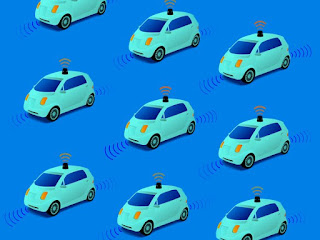MENTION AUTONOMOUS VEHICLES, and people conjure two visions of the future. The rosy picture features a world in which cars zip around by themselves, allowing commuters to while away their time checking email as they benefit from technology expected to save 600,000 lives by 2045. The dystopian view holds that all those vehicles will put some 5 million truckers, cabbies, and other drivers out of work.
The truth, of course, lies somewhere between the two extremes. But however it shakes out, the global economy will see a big boost. Like, a $7 trillion, with a t, boost. That’s the word from the data crunchers at Intel and the research company Strategy Analytics. The robocar sector could add as much as $2 trillion to the US economy alone by 2050.
Granted, much of that money will go to the GMs and Ubers and Googles of the world, and the auto industry could see a seismic shift in where it generates dough. “Over time, service, application and content revenue generated by mobility-as-a-service will supplant the value of vehicle sales as core sources of shareholder value creation,” the report states.
Translation: These companies will make big bank moving you and your Amazon purchases around.
Read Aarian Marshall’s story on Wired - “Robocars Could Add $7 Trillion to the Global Economy.”
(The privately owned motor vehicle has left the world in a precarious position. Today we face a choice, do we continue with a consumerist, ego driven idea of privately owned vehicles or do we opt for, and embrace, a sophisticated public transit system capable of answering every need, except the want of a private car?
I fear if will be the former, autonomous or otherwise, but it is the latter (a public transit system not yet really seen anywhere) that the world community urgently needs - Robert McLean)


No comments:
Post a Comment